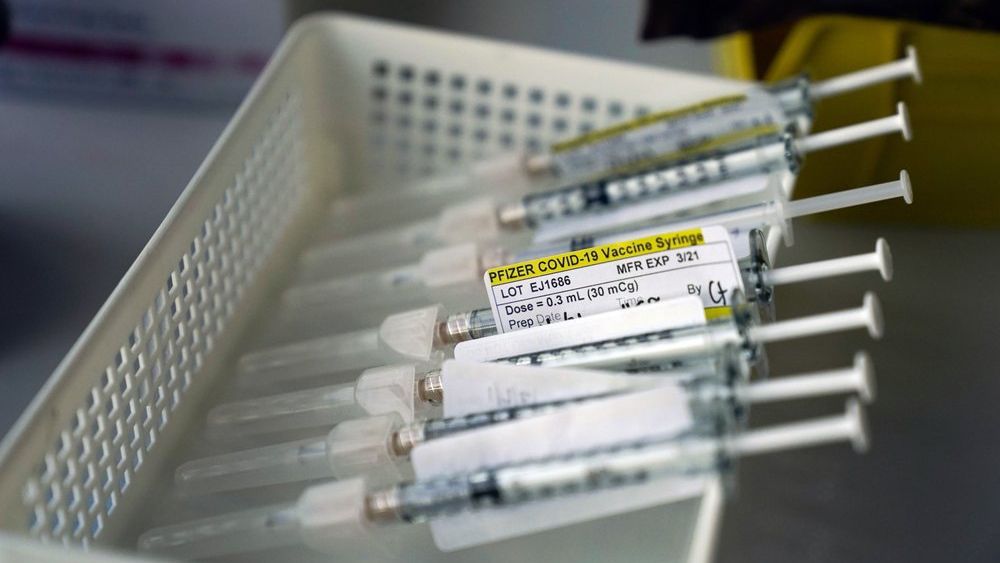Maine hospital officials indicated Wednesday that they're prepared to administer doses of the COVID-19 booster shot that federal officials announced would be available starting in late September.
Top officials of the White House's COVID-19 response team announced Wednesday that Americans would be eligible for booster shots beginning the week of Sept. 20, or eight months after their second dose of the Pfizer or Moderna vaccines.
“Based on our latest assessment, the current protection against severe disease, hospitalization, and death could diminish in the months ahead, especially among those who are at higher risk or were vaccinated during the earlier phases of the vaccination rollout,” prominent health officials, including Dr. Anthony Fauci, Chief Medical Advisor to President Joe Biden and Director of the National Institute of Allergy and Infectious Diseases, Dr. Rochelle Walensky, Director of the Centers for Disease Control and Prevention (CDC) and Dr. Janet Woodcock, Acting Commissioner of the US Food and Drug Administration wrote in the statement. “For that reason, we conclude that a booster shot will be needed to maximize vaccine-induced protection and prolong its durability.”
Dora Mills, chief health and improvement officer at MaineHealth, said the state's largest integrated health care network was already preparing to issue booster shots to people who are immunocompromised.
“We are definitely geared up to provide additional vaccines to those people,” she said.
Mills said two factors are driving interest in booster shots: first, new data from other countries, like Israel, show that people who were vaccinated over the winter are now showing less immunity to the disease.
The other factor, Mills said, is the delta variant. Data from the Maine Centers for Disease Control and Prevention indicated on Monday that samples of the disease are showing the delta variant is much more prominent in Maine than in previous weeks.
“This delta surge, it’s extremely concerning,” she said.
The good news, Mills said, is that the booster shot will be widely available. Unlike the initial wave of vaccines, she said, clinics aren’t waiting for a new vaccine to be developed. The current version of the Pfizer and Moderna vaccines already in production, she said, will be used as the booster.
“It’s the same vaccine,” she said. “It’s the same dose.”
Ellen Bartlett, a nurse, infection preventionist and public information officer at Houlton Regional Hospital, said she believes her hospital will be ready when the time comes to begin offering booster shots. To date, she said, her hospital has administered 3,800 vaccines. Her hospital has given the shots in mass-vaccination clinics, community outreach and drive-thru clinics.
“I don’t really see it as being a whole lot different than the challenges we’ve already faced,” Bartlett said.
Getting the public to want the vaccine, Bartlett said, is her hospital's biggest challenge. In recent months, she said, smaller efforts such as localized clinics led to fewer people getting inoculated than the mass-vaccination centers more common earlier in the year.
“We had a few but not the response that we wanted,” she said.
Mills agreed that public interest is a significant obstacle. During a recent all-day festival, MaineHealth set up a booth with enough shots to vaccinate up to 1,000 people; only five people got vaccinated.
“People just aren’t interested and don’t want to get it,” she said.



